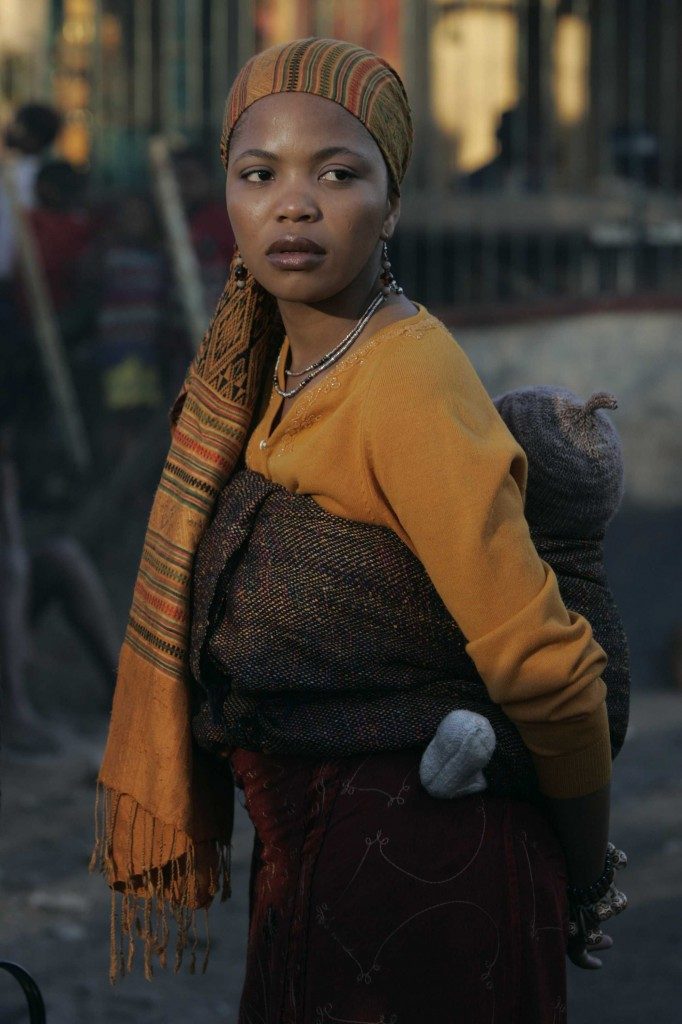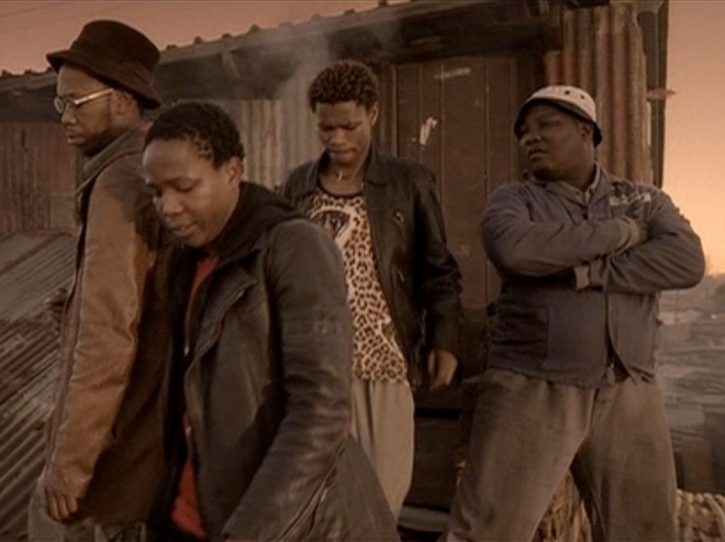The difference between right and wrong seems like a simple enough concept. Good people do good things. Bad people do bad things. This idea is not mutually exclusive, as is seen in the 2005 Academy Award winning film, Tsotsi. What happens when good people become bad based on their circumstances? What draws the line between what is moral and good and what is bad and indecent? The character of Tsotsi is the classic anti-hero. He does things that are very bad, but he is also a victim of circumstance. The more the audience comes to know Tsotsi and his background, the more skewed between good and bad, moral decency and heinous behavior becomes blurred.
Can a murderer be redeemable or likable? Throughout the film, Tsotsi does some very cruel things. He helps kill a wealthy man on a subway train. He shoots a woman in the stomach and steals her car with her three-month-old baby in it. He intimidates a paralyzed beggar. He goes back to rob the house of the baby, and kills one of his own crew, during the robbery. At the same time, you want Tsotsi to be redeemed. You want him to find the error of his ways. Seeing his past, escaping his abusive father and living in a pipe with other homeless children, you feel for the character and all he has been through. Despite being an anti-hero he is also an empathetic protagonist.
One theme pounded through the heads of the audience is the idea of decency. Fela, a local gang leader, even spells it out for the audience. A lot of characters discuss what is decent. Boston suggests that by murdering the man in the subway, they have lost their sense of decency. Petty crime to survive is one thing, but murder takes it to a new level. When they are discussing the kidnapping of the baby and suggesting the composite picture looks like Tsotsi, Seokie asks what kind of man would steal a child from his mother. The others in his gang cannot believe Tsotsi would do this, because it is a new level of crime, beyond what is decent and humane. When Tsotsi shoots and kills Butcher it becomes clear that the days of petty crime are over. Tsotsi can never go back and truly redeem what he has done because he has overstepped the bounds of decency.
The role of a mother is to nurture a child. Tsotsi brings the baby to Miriam. She has her own child and he knows she will be able to help him care for the baby. Tsotsi was enamored by the love she showed a baby not her own. He lacked all of the maternal love he needed to become a moral and decent human being. His own mother died of a terminal illness. His abusive father would not even let him stay with her in her dying moments. Instead, he scared Tsotsi/David, by yelling and kicking the dog so hard he paralyzes the animal. This causes Tsotsi to run away.
When Miriam finds out where Tsotsi got the baby, she urges him to return the child. He can never fulfill the role of a mother. The baby’s mother is strong enough to survive the shooting, but she cannot function without her child. Until the baby is in her arms, she is heartbroken. Even Miriam believes she cannot replace the love that has been lost by Tsotsi stealing the child. She urges him to return the baby, which he does.
Finally, the film looks at the differences in economic diversity. The rich live in a nice area, filled with exceptional housing. Tsotsi and his friends live in shacks. They are in the slums of Johannesburg. The shacks do not have much in them. Tsotsi takes the baby to the pipes where he lived and where a bunch of little kids are currently living, which further emphasizes how the poor, especially the young, suffer because of economic disparity. Tsotsi and his gang must rob the rich to survive. It is implied that this is how Tsotsi was even able to get a shack, in the first place. The difference between the gated home of the baby’s parents and Tsotsi’s slum neighborhood is quite dramatic.
The house where the baby’s family lives is gated (this gate is also significant to the struggle Tsotsi goes through – as he goes from closed off to opening himself and his heart to others). There are alarms on it, and the inside of their home is quite large. Tsotsi is in awe when he is in the baby’s room, from it’s African safari mural on the wall to all the toys the baby has throughout the room. This is more than young David could have imagined having when he was a child. There are great parallels between decency and economic prosperity. The rich seem to be good and decent people. The poor struggle morally as they struggle to feed and clothe themselves.
All in all, Tsotsi is a thinking man’s (or woman’s) film. It leaves you with plenty to think about. Can you condemn David/Tsotsi for his crimes or can you believe the experience with the baby has changed him for the better? I think both are possible, and yet the film’s ending leaves this ambiguous. It is up for the audience to decide what ultimately happens to him and how he is changed by it.



Comments